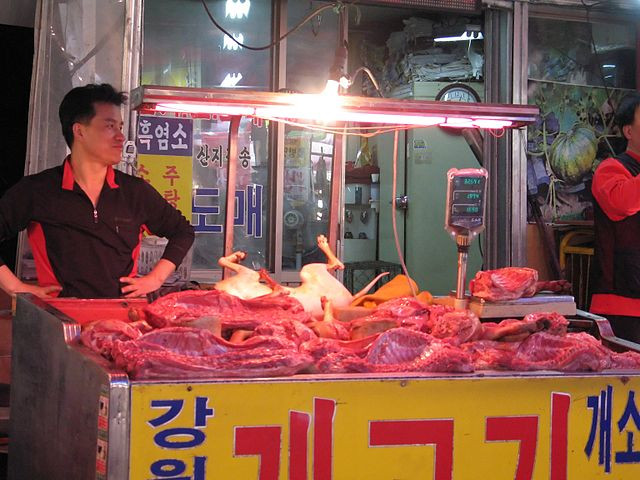South Korea's National Assembly has approved legislation prohibiting the breeding and slaughter of dogs for meat consumption, signaling a significant cultural shift in a nation where dog meat has been a traditional food. The bill garnered an unusual level of bipartisan support, reflecting changing attitudes among South Koreans toward dogs, which are increasingly seen as pets rather than livestock.
Under the new law, individuals involved in the dog meat industry, including breeders and sellers, face up to three years in prison or fines up to 30 million Korean won (about $23,000) if they slaughter dogs for food or deal in dog meat products. Consumers of dog meat, however, will not be penalized. The legislation introduces a three-year transition period to allow those in the dog meat trade to shift to alternative businesses, with local governments mandated to support these individuals.
President Yoon Suk Yeol, known for his affection for animals, is expected to endorse the bill. The move comes as pet ownership in South Korea has risen sharply, with approximately one in four households owning a pet dog in 2022, compared to 16% in 2010.
Animal rights activists have long criticized the consumption of dog meat in South Korea, highlighting inhumane slaughtering methods. International groups like Humane Society International have actively worked to rescue dogs from South Korean farms. The declining demand for dog meat, especially among younger, urban South Koreans, has led to a substantial decrease in the number of restaurants serving dog meat in Seoul.
Lee Sang-kyung, campaign manager at Humane Society International Korea, noted the changing perceptions of dog meat consumption. "Our perception of dog meat consumption and animals, in general, has been changing over the last decades. It was once popular when our food resources were scarce, but as the economy develops and people's perception towards animals and our food consumption change, then I think it's the right time to move with the times," Lee explained.
The decision to ban dog meat has been met with opposition from those in the industry, who argue that it threatens their livelihood and cultural practices. Dog farmers and business owners have expressed concerns about the impact of the ban on their lives, with some protesting outside the presidential office in Seoul.
Despite these challenges, supporters of the bill believe that the transition period and government support measures will help those affected by the ban to adapt. The legislation marks a significant cultural and ethical milestone in South Korea's approach to animal welfare and reflects broader global shifts in attitudes toward animals and food consumption.




